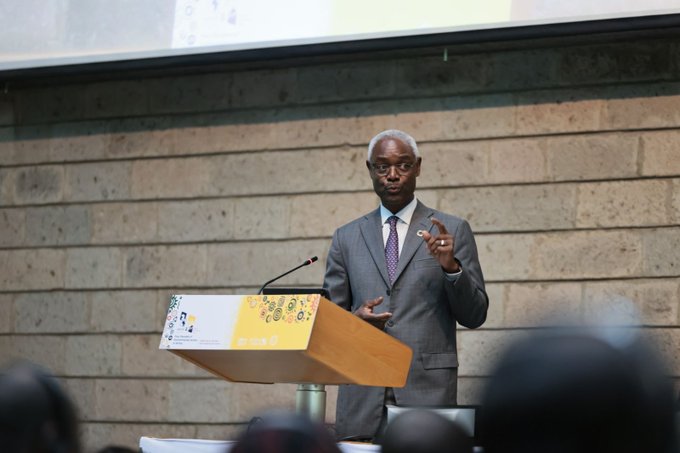

Outgoing UNCCD executive secretary Ibrahim Thiaw /UNEP.
The outgoing head of the United Nations Convention to Combat Desertification has announced "exceptional achievements" in a joint quest to protect productive land and build resilience to drought.
“As I conclude my tenure, I could only but reflect on the last six years of my mandate at the helm of the UNCCD secretariat and the exceptional achievements we have made together in our joint quest to protect our productive land and to build our resilience to drought,” executive director Ibrahim Thiaw said in a letter to National Focal Points and Partners.
Dr Yasmine Fouad will replace Thiaw on August 6.
“Under your guidance and leadership, I believe we have elevated the issues of land degradation and drought to much higher levels,” he said.
He cited regional large-scale restoration initiatives such as the Great Green Wall (in the Sahel and in Southern Africa) or the Middle East Green Initiative, as well as the setting up of the International Drought Resilience Initiative and the Riyadh Drought Resilience Initiative as indicators of an irreversible change.
Thiaw said much remains to be done, adding that even though he has opted for administrative retirement, he will continue to serve as long as he can.
He said a lot of strides have been made, thanks to the support he got from the UNCCD secretariat.
Thiaw cited the adoption of significant policy decisions successively at COP14 (India), COP15 (Côte d'Ivoire), and more recently at COP16 (Saudi Arabia).
The UNCCD COP14 ended on September 13, 2019, in India.
The conference adopted the Delhi Declaration, in which parties expressed commitment to a range of issues, including gender and health, ecosystem restoration, taking action on climate change, private sector engagement, the Peace Forest Initiative, and recovery of 26 million hectares of degraded land in India.
UNCCD COP14 agreed on 36 decisions to ramp up and elaborate further action on the ground to ensure that the convention’s goals for 2018-2030 are achieved.
At the closing of COP14, Thiaw said land restoration is the cheapest solution to climate change and biodiversity loss and makes business sense if regulations and incentives to reward investment are in place.
He said drought preparedness and response are critical in the face of climate change, urging parties to put people first to ensure gender balance, engage youth, and secure land rights.
COP15, which opened Monday, 9 May, 2022, committed to restoring one billion hectares of degraded land by 2030 and boosting drought preparedness, response, and resilience.
COP16 of the UNCCD took place in Riyadh, Saudi Arabia, in December 2024.
The nearly 200 countries committed to prioritising land restoration and drought resilience in national policies and international cooperation as an essential strategy for food security and climate adaptation.
More than $12 billion was pledged to tackle desertification, land degradation, and drought around the world, especially in the most vulnerable countries.
Participants heard that UNCCD estimates that at least $2.6 trillion in total investments was needed by 2030 to restore more than one billion hectares of degraded land and build resilience to drought.
New pledges for large-scale land restoration and drought preparedness were announced, such as the Riyadh Global Drought Resilience Partnership, which attracted $12.15 billion to support 80 of the world’s most vulnerable countries in building their resilience to drought.
The Great Green Wall, an African-led initiative to restore 100 million hectares of degraded land, also mobilised EUR 11 million from the Italian government for landscape restoration in the Sahel and EUR 3.6 million from the Austrian government to strengthen the coordination and implementation of the initiative across 22 African countries.













